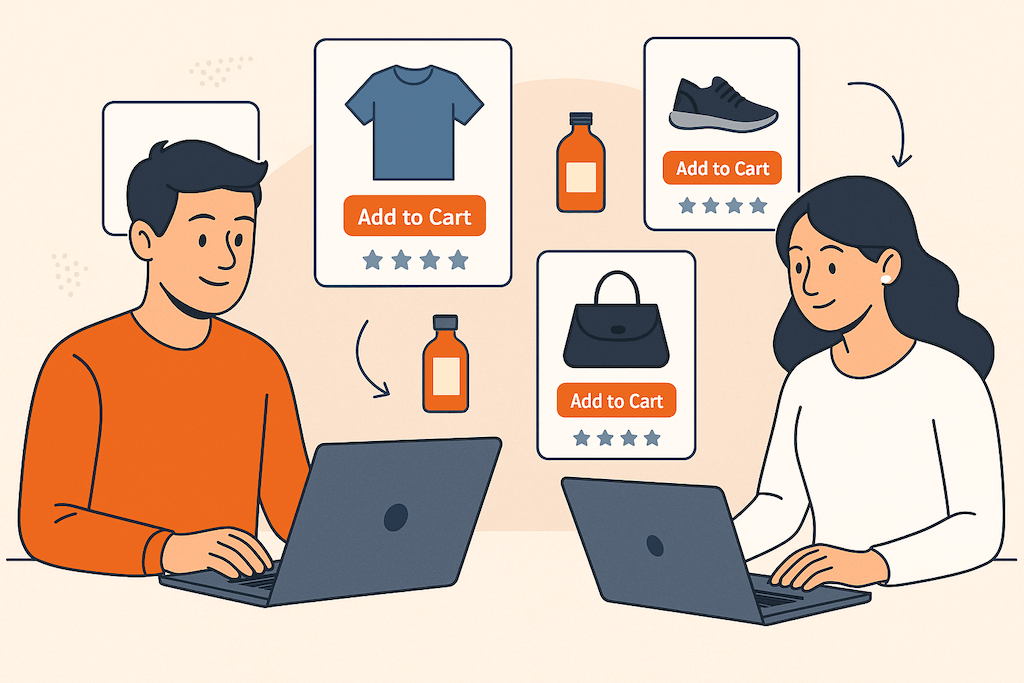A Deep Dive into WooCommerce and Shopify
In our hyper-connected age, establishing a robust online presence is no longer optional for businesses; it’s indispensable. As a growing number of B2B enterprises recognize the merits of eCommerce, the significance of choosing the right platform becomes paramount. Beyond being a digital storefront, an eCommerce platform embodies a brand’s commitment to delivering a seamless, efficient, and secure shopping experience, all crucial for conversion optimization.
Understanding B2B eCommerce:
B2B, or Business-to-Business eCommerce, signifies transactions between businesses. Unlike B2C, where businesses target individual consumers, B2B transactions often involve more complex negotiations, larger volumes, and specialized products or services tailored for businesses. The stakes are high. The right platform needs to ensure smooth operations, considering the unique nature of B2B interactions and the high expectations from business clients.
WooCommerce Vs. Shopify: An Overview
At the forefront of e-commerce solutions stand two giants: WooCommerce and Shopify.
- WooCommerce: Originating as a plugin for WordPress, WooCommerce boasts a rich ecosystem. It offers unparalleled flexibility, allowing businesses to fine-tune their stores. With access to numerous extensions, WooCommerce is a canvas ready to be tailored to a brand’s exact needs.
- Shopify: Celebrated for its user-friendliness, Shopify provides businesses with a comprehensive toolkit right out of the box. With a SaaS model, Shopify ensures businesses get a robust, secure, and scalable solution without the intricacies of manual setups.
Factors to Consider When Choosing a B2B eCommerce Platform:
- Scalability: Both WooCommerce and Shopify offer scalability, but in distinct ways. While WooCommerce allows you to scale by adding more server resources and optimizing your website, Shopify Plus, Shopify’s enterprise solution, takes care of scalability behind the scenes.
- Flexibility: WooCommerce’s open-source nature grants a level of customization unmatched by most. In contrast, Shopify, though not open-source, provides an array of apps and integrations to enhance its functionality.
- Security: Shopify’s hosted solution means it takes care of security protocols, providing SSL certificates and ensuring PCI compliance. WooCommerce, being self-hosted, requires businesses to manage these elements, though with the right steps, it can be fortified to be just as secure.
- User Experience (UX): Both platforms prioritize UX. Shopify offers a more streamlined out-of-the-box experience. WooCommerce, with the right themes and plugins, can deliver a stellar UX but might require more setup.
- Pricing: Shopify has clear pricing tiers, but businesses should factor in costs from third-party apps. WooCommerce is free, but costs like hosting, domain, SSL, and premium plugins can add up.
- Support and Community: Shopify provides 24/7 official support. WooCommerce, while having no official direct support, boasts a massive community and extensive documentation.
The B2B Angle: Which Platform Offers More?
When we narrow down to B2B functionalities:
- WooCommerce: Its flexibility shines, allowing businesses to implement B2B-specific features using plugins. Whether it’s bulk pricing, tiered pricing, or custom catalogs, WooCommerce has a plugin for it.
- Shopify: While traditionally B2C-centric, Shopify has ventured into the B2B realm. With apps and Shopify Plus features, businesses can integrate B2B functionalities with ease.
Taking The Leap: Steps to Finalize Your Platform Choice
- Deep Dive Research: Beyond surface reviews, look at in-depth analyses, case studies, and real-world applications of both platforms in the B2B context.
- Hands-On Experience: Utilize trial periods. While WooCommerce doesn’t have a trial per se, setting up a basic site to test its waters can be beneficial. Shopify offers a 14-day trial, giving businesses a feel for its capabilities.
- Expert Consultation: Engage with professionals who’ve implemented both platforms for B2B operations. Their insights can be invaluable.
The digital realm is vast, with potentials only limited by one’s chosen tools. WooCommerce and Shopify, each with its strengths, present businesses with platforms capable of fostering growth, ensuring security, and delivering impeccable user experiences. Your choice will shape your online journey, influencing not just aesthetics but overall functionality, security, and the potential to drive conversions.
Still pondering the perfect platform? Our team of WooCommerce experts and Shopify Plus Partners stands ready to guide your decision-making process. Let’s partner to enhance your digital strategy and elevate conversion rates.



